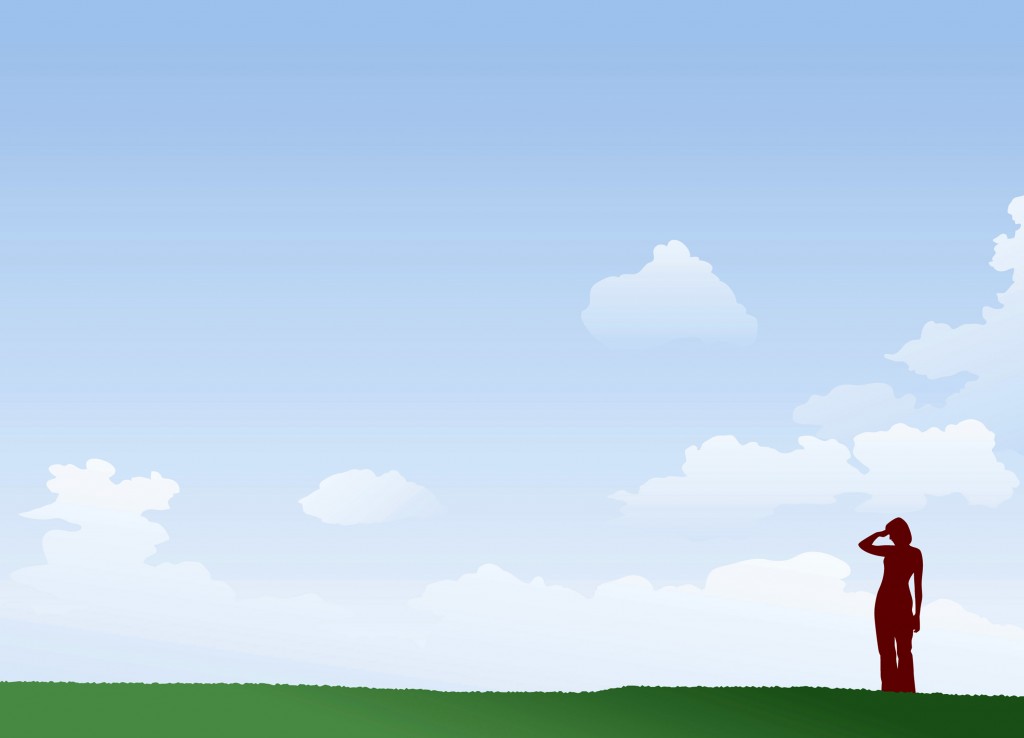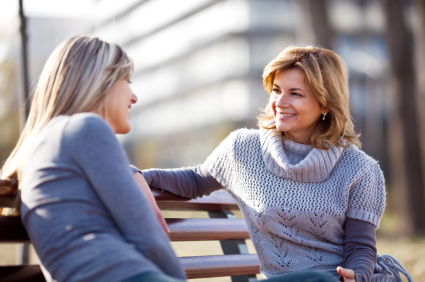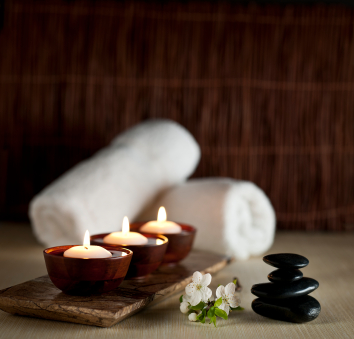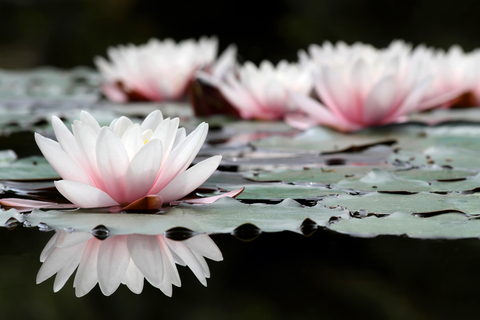New Year? New You!
Want to know one of the most important resolutions that you can make? Commit to you!
I write about a lot of topics on Flashfree but the overriding theme is health and the importance of taking care of yourself. And no one can do that better than you can, that is, once you make a commitment to become healthier and identify strategies that work best for you. There are four tips that I’d like to offer to help you get over the initial hump.
- Move. I can’t emphasize the importance of physical activity enough. From bone health to heart health to mental health, it is the one accessible, equal opportunity strategy, regardless of income or geography. Because even if you don’t have entry to the gym, you can walk, run, bike, step, or engage in other activities that don’t require a membership or a monthly fee. In addition to counterbalancing the calories that you ingest daily, simply simply engaging in vigorous physical activity, i.e. 7 days of a combination of moderate intensity/intense activities that add up to 3000 MET minutes a week) can significantly decrease menopausal symptoms, in particular fatigue, depression, insomnia and hot flashes. (Activity level is scientifically measured by units known as METs, or metabolic equivalents; vigorous activity is equivalent to 8 METs and moderate activity to 4 METs).
- Be conscious. My grandmother used to say ‘everything in moderation.’ When it comes to diet, I don’t engage or believe in deprivation but I do try to balance out the occasional junk and sweets with healthy, daily doses of vegetables, fresh fruit, lean proteins and fiber. Researchers say that what you eat is extremely important. In a study of over 500 women, the strategy that worked best, leading to an average weight loss of 17 pounds over six months, entailed boosting intake of soluble fiber, fruits, veggies, whole grains and sources of plant stanols/sterols (i.e. almonds, brussel sprouts, wheat germ/bran, peanuts, olive oil and omega-3s). However, they also started moving more and adding regular, moderately intense activity to their daily routines.
- Engage. Want to know the key to health and wellbeing? Your friends. Data from a study published in Psychological Review in 2000 suggests that women’s inherent response to stress is to ‘tend and befriend’ rather than ‘fight or flight;’ in other words, there is a biologically-defined strategy or pattern that involves caring for offspring, joining social groups, and gravitating towards friends under stressful circumstances. This is driven, at least in part, by the release of the hormone oxytocin, which coupled with endogenous opioids and other sex hormones, promotes maternal behavior as an alternative to the male-oriented fight and flee response. Other findings have also shown that friendships help prevent the development of physical impairment and facilitate a more joyful existence. What’s more, having a strong social network can lower blood pressure and heart rate and improve cholesterol levels. The bottom line? Nature has provided us with a built-in prompt to maintain those ever important bonds. Our inherent tendency to nurture completes the picture.
- Laugh. Several years ago, researchers discovered that humor therapy and anticipation of laughing or being amused (also known as mirthful laughter) boosts mood hormones and raises human growth hormone (which optimizes immunity levels. Mirthful laughter has been shown to lower stress hormones and improve the functioning of certain cells – natural killer cells – that favour immune function. Daily laughter also helps lower cholesterol, decreases inflammation that contributes to disease and improves overall wellness. A good belly laugh goes an awfully long way. That funny bone? Seek it out.
Sisters, friends…keeping the communication channels open
When life piles, who do you turn to? Your sister? Your friends? The internet?
Without them I would be lost.
When I first started penning this blog, I ran across a small study. While many in scientific circles would refer to it as a pilot study, with findings that are inconsequential because of the small numbers, I am here to declare loudly and broadly that small and anecdotal sometime rule the day!
What type of resources do you rely on? And where do you turn for information or support? And, who should you turn to when available information is seemingly overwhelming and inconsistent, and medical expertise is unavailable?A friend recently commented that the type of resources available to women living in rural areas are very different than those available to women living in urban areas. Hence, the ability to access knowledgeable practitioners or even find trusted sources of information really depends on where you live.
This has been borne out by results of a study conducted among 25 menopausal women living in rural areas of Nova Scotia. Participants described a need to understand the intensity of their symptoms but often found it difficult to sift through “excessive and conflicting” information on the web. This was further compounded by the lack of trusting relationships with healthcare providers due to their scarcity and also, the fact that local facilities failed to retain good people.
The researchers explain that women who participated in this study drew heavily on shared experiences and the ability to communicate freely and openly with women who were going through similar things. More often than not, they continuously sought validation from their peers to avoid feeling confused and alone. And found that a great way to deal menopause was through humour.
Whether a woman resides in rural Nova Scotia or New York City, a sense of community, mixed with open communication and a little bit of humour, can go a long way. She who laughs with others…lasts.
Read MoreWho’s your advocate?
Do you have an advocate? Someone who understands you, knows you well enough to read between the lines, trusts you and actually likes you?
If you do, luck is your lady. And if you have an advocate in your professional life? Boy, that’s the lottery, the gold ring, Nirvana.
So let’s talk about that, shall we?
I’ve written previously about becoming invisible in the work world as we age. I have written about friendships and the health benefits that can be gleaned. And I have written about how the transition can change our outlook on work and life. But what happens when all of these things converge? Is it the perfect storm? Or just perfect?
I want to share a story. When I was in my Twenties, just starting out in my career, I worked for a NYC PR agency. After the head of our department sadly passed away from AIDS, he was replaced by someone from our parent company who was very competent but very insecure. I was already a fixture so she had to deal with me and reluctantly she did. And then she brought in a woman who I was supposed to hate. Seriously, those were her words. And that person? She was told she would hate me.
Guess what? Not only did we not realize pretty quickly that we did not hate one another but it turned out to be one of the most productive and functioning professional relationships I have ever experienced. More importantly, I gained a friend.
And, after many decades, while the friendship has remained, fate has brought our professional relationship back into being. Who would have thunk it when both of us were in our twenties and living in NYC and two women who were theoretically not destined to get along?
I’m tough to work with at times. No, I am downright difficult and impatient. But I have a birdseye view of things and can see waaaay into the future of a project, which is an important asset. And her? She’s really smart and patient and has really good instincts. And is really strategic, like me. Together, we make a pretty fine couple. And a fantabulous team and probably should have always been merged into one. A professional one.
What a concept!
So, I digress. Because I want to share that advocates are SO important as we grow into our professional roles. I have been fortunate to have several in my life. Really fortunate. But more importantly, when you find that special advocate (or advocates), don’t let them go. Let them know how much you appreciate them. And nurture them as they nurture you.
Hey Melon. You are da bomb. No really!
Thank you. I love you through and through.
We ain’t 26 or 27 anymore sister, but we still are. Wow! How lucky am I?
Read More
Is a spa retreat the key to your soul’s estate?
(S)he enjoys true leisure who has time to improve his soul’s estate. – Henry David Thoreau
If you are anything like me, you’ve worked yourself to the nth degree and are in need of rejuvenation. After all, your soul’s estate is only as valuable as its upkeep, right? However, is there any proven benefits to a spa retreat beyond that incredible boost of endorphins that feed an overall sense of wellbeing?
Evidently, there really is! In fact, contrary to what many believe, newly-published research in Integrative Medicine suggests that the combination of caloric restriction, colonic therapy, meditation and yoga may provide the body with actual physiological benefits beyond the feeling of wellness. Mind you, certain practices like caloric restriction can be downright dangerous if not effectively carried out, reducing much needed vitamins and minerals, resulting in a loss of lean body mass and even taxing the heart. Colonic hydrotherapy, i.e. removing toxins from the intestines, has likewise been questioned, namely because there are few data to support claims of therapeutic benefit and without proper guidance, may result in nausea, vomiting, dehydration and electrolyte imbalance.
However, in this very small study of 15 healthy women and men, a one-week, intensive spa program that focused on three main areas – calories, toxins and stress management — yielded some surprising results. Roughly three to four days before a week at the spa, the participants switched out their normal eating habits for fruit, raw and steamed veggies, salads, juices and herbal teas, 2 tablespoon of olive oil at bedtime, 8 oz of prune juice every morning and laxative teas at night. They were also asked to avoid potatoes, bananas, all grains, pasta, meat, dairy, processed foods, caffeine and alcohol.
At the spa, all received at least four colonic treatments and did 800 calorie juice-fast cleanses (all herbal teas, veg/fruit juices, probiotics, digestive enzymes, herbal laxatives, olive oil, vegetarian liquid protein supplements, vegetarian soup and water with lemon). They also participated in daily structured meditation and yoga programs as well as personal meditation to boost deep breathing, heightened awareness and calm.
The findings? Clearly, all participants dropped weight, which is to be well expected from caloric restriction; this weight loss averaged about 7 pounds. Likewise, there was expected decrease in blood pressure. Blood fat levels, namely total cholesterol, also benefitted, and levels of mercury declined in some participants, which supports the hypothesis that this type of program can help clear the body of certain toxins. Not surprisingly, the researchers also noted a significant decrease in stress, depression and anxiety and saw improvements in anger levels, tension and fatigue. Spirituality scores also improved, probably as a result of meditation and the group appeared to be more intensely unified than before the spa visit.
Researchers say that while the study is quite small, it appears that intensive spa programs may have some real benefits. One thing to note is that the participants experienced changes in sodium and chloride levels. This indicates that some of these interventions do affect electrolyte levels and therefore, can be risky in people who are predisposed to imbalances or on certain medications like diuretics. The researchers also recommend that before participating in ‘extreme spa,’ that you have a complete physical to insure that your body is up to the task.
Extreme spa or gentle spa that focuses on health, balance and internal (re)connection. All may hold the key to estate management. Your soul will thank you!
Read MoreWednesday Bubble: Asking for Help
Ready to burst a bubble, as in, your own?
When was the last time you asked for help? Better yet, how easily do you ask for and receive help?
Reading Karen Rosenthal Hilsberg’s “Lessons in Living” and her struggle to make sense of a life unraveled as her husband dies, I can’t help but reflect on a close friend who was ill several years ago. Despite a ‘take no prisoners’ attitude, he had trouble acknowledging the seriousness of his condition and even more trouble asking for support. Quite honestly, he doesn’t do too well in that department and neither do I. However, like him, I readily offer assistance to those I love and care about, whenever I can.
So, why the divide between offering and taking?
Hilsberg writes that “what I learned during this intense time of life was profound. I learned to ask for help from others.” Utilizing the mindfulness practice of the Zen Master, Buddhist monk and scholar Thich Nhat Hanh and the Buddhist Master Thich Phuoc Tinh, she says that she discovered that asking for help really wasn’t much different than providing it, that the helper and ‘helpee’ were intertwined, unable to exist without the other. By allowing assistance, she was able to provide others who cared about her and her family an opportunity to “be of service and to practice generosity” and in doing so, make a shift away trying to do everything on her own. Most importantly, by reflecting on how much she personally enjoyed being of service when loved ones needed her, she was able to accept how appropriate and okay it was to actually ask for help from others — to allow them to “do” as much as she did. The result? Her “wellbeing improved as [she] felt [her] burden shared by many hands.”
As caretakers, many women often do not adapt well to being on the “receiving end.” And yet, most of us are aware of the importance of social ties, friendships and support to our health and wellbeing, particularly as we age. So why do we find it so difficult to ask for and receive help? How do we acknowledge that be cared for does not equate to losing power or control but actually improves outlook, wellbeing, and ability to deal with any challenges that we might be facing, that allowing others to “do” empowers and does not ‘de-power?’ Is it fear of refusal? Or fear of letting go?
Mastering the art of asking for help is difficult. However, it behooves us to do so, not only for our wellbeing but for the wellbeing of those around us who wish to help.
My friend deserves the kind of care that he has provided to others in his life for most of his life.
Guess what?
So do you.
Read MoreA Week of Wellbeing
This week is dedicated to wellbeing. The wellbeing of the collective “we.”
According to the National Accounts of Well-being, wellbeing (hyphen optional) means having a sense of vitality, enjoying and undertaking activities that have meaning and most importantly, possessing “a stock of inner resources to help cope when things go wrong,” resources that create a thicker skin and the ability to bounce back when life happens, the type of life that is beyond our immediate control.
When was the last time you took stock of your wellbeing and your resources?
While I am taking care of my wellbeing from afar, I would like to resurrect a few posts dedicated to wellbeing. Because you’re worth it. We all are!
Laughter. It’s never to late to remind ourselves of the lighter side.
Several years ago, researchers discovered that humor therapy and anticipation of laughing or being amused (also known as mirthful laughter) positively affects immunity. In fact, findings from a series of five separate studies among healthy men demonstrated that just anticipating watching a funny video could increase beta-endorphins (hormones that elevated mood) as much as 17% and human growth hormone (which contributes to more optimal immunity) by as much as 87%. Elevated hormones levels were maintained throughout the video and as long as 12 hours after. Conversely, hormone levels did not increase in men who who did not anticipate watching a humorous video and instead, browsed magazines.
Similar results were seen in another study among healthy adult women; this time mirthful laughter was associated with significant declines in stress hormones and improvements in natural killer cells, which contribute favourably to immune function.
Over the past two years, researchers have been examining the effects of mirthful laughter on actual disease states. Findings of a year-long study presented two years ago at the Experimental Biology Conference suggest that watching a funny, 30-minute video on a daily basis may impart a long lasting impact on health that includes:
- Lower stress hormones (epinephrine and norepinephrine) and related stress levels
- Lower levels of inflammation that can contribute to disease
- Significant improvements in HDL cholesterol
- Significant reductions in harmful C-reactive protein levels (a protein that increase the risk for heart disease, heart attack, stroke and death)
This particular study evaluated laughter in patients with diabetes, high blood pressure and high cholesterol who were also taking medication. Notably, similar positive outcomes were not seen in patients who did not have the benefit of watching the funny video.
What can we take away from this work and what does it have to do with menopause? Actually, I’d like to ask, what doesn’t it have to do with menopause and midlife?
During the transition, women are subject to hormonal stressors that affect mood, functioning, wellbeing as well as disease risk. If there are simpler, more natural ways to improve healthy states, for example, by daily laughter, shouldn’t we reach for them? I’d rather take a dose of funny over pharma any given day.
Here’s my gift to you: laugh today. And tomorrow. And the next day. And spread the joy. Nothing like a deep belly laugh to take some of life’s challenges away.
Read More












